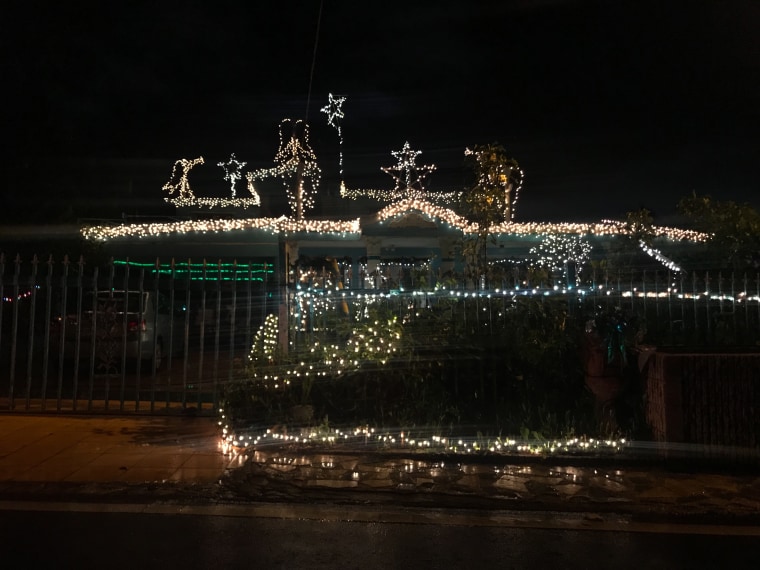Charlyn Gaztambide Janer, a Puerto Rico-based public relations specialist, lived for several years in New York City, near Times Square. Though she lived in a bustling part of the city, she avoided the Christmas holidays in New York, and it wasn't just because of the "cold and darkness."
What she really missed when she heard traditional Christmas carols like "Silent Night,” were the Puerto Rican parrandas.
"It’s such a dramatic difference," said Gaztambide Janer. "Everyone is partying and hanging out with real happy music. I don’t miss the gloom and doom for one minute!”
Ask Puerto Ricans what makes their Christmas holidays distinctive, and they'll mention parrandas.
The parranda (which loosely means "party") is Christmas caroling Puerto Rican style. Friends get together at night with tambourines, guitars and other musical instruments, and go from house to house not just to sing, but also to eat, drink and spent time together before moving on to the next home.
The music is festive, upbeat and at times funny. The lyrics of these songs include, "“I’ll cry if you don’t give me a drink," and "At 2am we ate a lechón, (roast pork) and we ended up with a stomach ache.”
For Puerto Ricans who have grown up with parrandas, traditional Christmas carols feel very different.
While traditional songs like "Silent Night" and "Holy Night" form part of the Christmas repertoire in Latin America and the Caribbean — the songs have been translated into Spanish — they have a solemnity to them that inspires reflection rather than cheer.
Even the lyrics to more recent but iconic Christmas songs, like, “Have Yourself a Merry Little Christmas,” have a sadness to them. The lyrics for the memorable song in the movie “Meet Me in St Louis” were so sad that its star, Judy Garland pleaded with the writer to change them, so that those faithful friends that were dear to us "would be near to us once more," instead of "near to us no more.”
The same goes for Charlie Brown’s “Christmas Time is Here,” with its slower, almost poignant tempo.
Margarita Bauzá, a native of the island who has been living in Michigan since the 1980s, said she tries to transplant some island traditions into her suburban Detroit home by putting up the Christmas tree early and playing Puerto Rican holiday music.
"I want the Christmas cheer to start early in my house and last as long as possible," she said. "And I like to listen to cheerful music and songs that bring a lot of happiness.!"
Claudia Campos, a Colombian-American psychologist who lives in the Washington, D.C. area, said she understands why keeping the parranda tradition is so meaningful to boricuas like Bauza.
“Music can change your mood and in turn change everything else," said Campos. "It’s good during this time of the year to think happy thoughts and focus on feeling good and not focus on sadness."
Though not everyone can hop on a plane to the island like Gaztambide did during her years in New York, listening to parranda songs are a pretty good substitute.
“Music definitely helps with happiness, particularly now when it’s a nostalgic time of the year and especially if you’re far away from your family and relatives,” said Dr. Campos.
FOLLOW NBC LATINO ON FACEBOOK, TWITTER AND INSTAGRAM.

